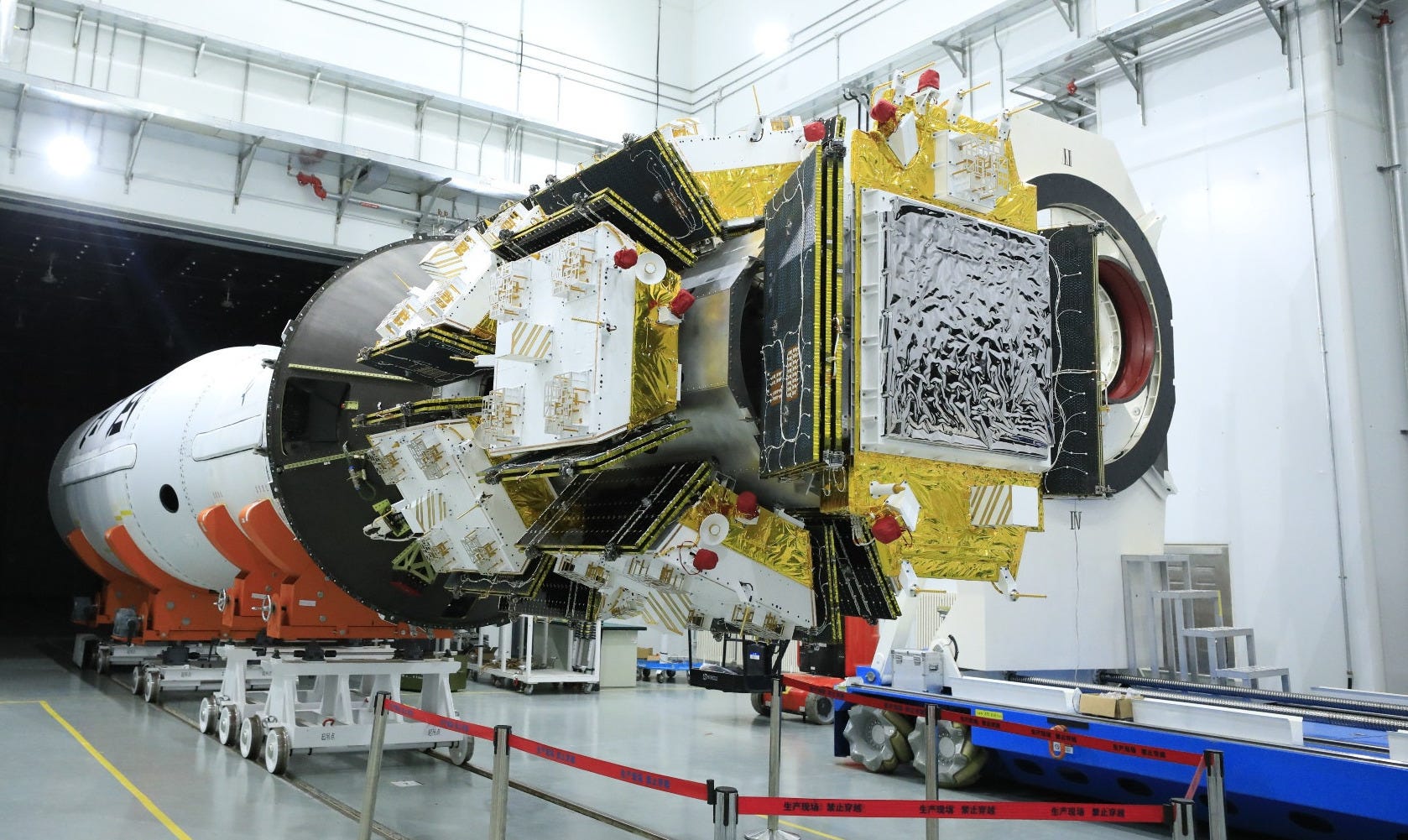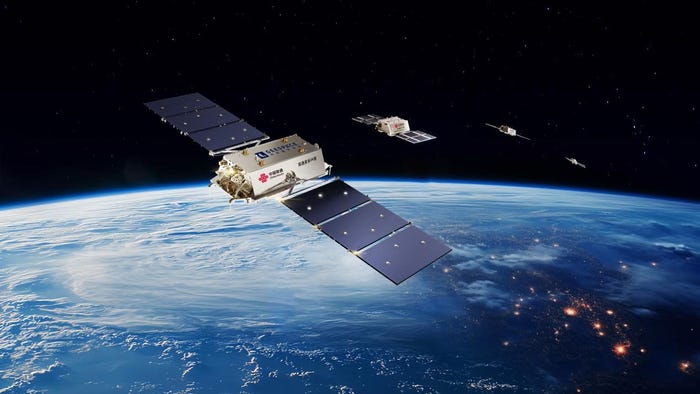China's Telecom Providers Set to Expand Space-Based Services
New licenses may see mega-constellations bring coverage to handheld devices.

China’s regulators have cleared five telecom providers to begin direct-to-cell satellite services, opening the door to greater space-based mobile coverage.
On September 29th, China’s Ministry of Industry and Information Technology (中华人民共和国工业和信息化部)1 announced it has issued its first set of licenses for satellite mobile services, also called direct-to-cell (abbreviated as D2C), to five telecommunication companies. The state-owned China Mobile (中国移动), China Unicom (中国联通), China Telecom (中国电信), and two smaller ‘basic’ unnamed enterprises were recipients of the new licenses. This comes after the ministry released its guiding opinions for promoting satellite communication services in August, with the aim of having ten million users connected by 2030.
Through the licenses, the five companies are authorized to provide space-based coverage for emergency communications, as well as for users based in remote or maritime regions. It is expected that through their varying partnerships with space enterprises, the newly licensed telecommunication providers will begin competing based on market needs, collaborating with consumer device manufacturers too.
Despite the new licenses, efforts for D2C services began a few years ago. Around two years ago, China Mobile began offering mobile messaging services through China’s BeiDou network in emergency situations. However, those messages are limited to twenty characters, or eighteen if location data, with an accuracy of about ten meters, is attached. To not have D2C limited to one provider or network, three Tiantong (天通) satellites were launched in 2016, 2020, and 2021 into geostationary space to serve mobile devices through China Telecom for consumers.
Since Tiantong began its services, about 400,000 calls per month were handled from areas previously lacking signal, like mountain ranges and offshore for boats. Meanwhile for BeiDou, Huawei alone has produced more than forty million devices capable, across sixty products, of connecting to the network. Although usage of BeiDou and Tiantong through Huawei devices has steadily declined this year due to the construction of new 5G base stations.
To improve space-based D2C service capacity, China Unicom has already partnered with Geespace for the automaker-backed Geely Future Mobility Constellation, which has seen a few larger satellites launched this year, possibly to test improved mobile-centered coverage. At least four satellites, one of the newer, larger variant and three regular spacecraft, are being operated via cooperation between the two enterprises to demonstrate space-based coverage.
Meanwhile, GalaxySpace has been signing agreements with Thailand and Nigeria to provide D2C services. The company is currently a manufacturer for the Central Government-backed GuoWang mega-constellation, hinting at some details about the largely unknown network. Once launches resume, the Shanghai-supported Qianfan constellation may include D2C services to improve its commercial prospects and competitive position.

As of 2023 directives, the Ministry of Industry and Information Technology is responsible for formulating plans and policies for the development and industrialization of high-tech industries, guiding the construction of national science and technology parks such as national independent innovation demonstration zones and national high-tech industrial development zones, and overseeing the development of science and technology service industries.


